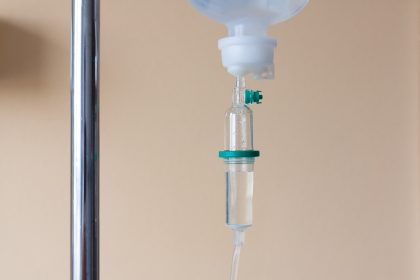Study: Going to Bed Late Associated With Mental Health Risk

WASHINGTON — Have you ever called yourself an early bird or a night owl? These terms refer to your chronotype, which may influence your sleep habits and impact your health. It is well known that getting at least seven hours of sleep per night may improve your health and a new study finds that what time you go to sleep also matters.
Researchers have been interested in how chronotypes and sleep behavior overlap. While tuning in to your body’s unique rhythm may be beneficial, going to bed earlier, despite your preference, may lead to better mental health outcomes. Here, we’ll explain the new study and how sleep can impact mental health.
Impact of Behavioral Timing and Preference on Mental Health
Researchers at Stanford University published a new study on sleep and mental health in the Journal of Psychiatry Research. They analyzed information from the UK Biobank, a database of lifestyle and health statistics from half a million U.K. residents.
Groups
The sample group consisted of 73,888 community-dwelling adults, aged 56 to 68, 56% female, and 97.1% Caucasian. All participants slept six to eight hours per night.
The researchers sought three statistics:
- Their self-reported chronotype (morning person, intermediate, or evening person).
- What time they went to bed, before or after 2 a.m., over seven days, measured with a wearable accelerometer.
- Their mental, behavioral and neurodevelopmental disorders, anxiety, and depression.
Chronotype is the natural preferences of the body for wakefulness and sleep, for example, early bird or night owl. Previous studies have measured how chronotypes can influence mental health. The researchers in this study hypothesized that aligning chronotype with behavior would yield better mental health. People should do what feels natural to them — morning types should go to sleep earlier, and evening types should go to sleep later. The results were surprising.
Results
Of the group, 25.8% self-reported as morning types, 64.9% were intermediate types and 9.26% were evening types. About half (47.9%) of the group aligned their chronotype with their bedtime. Of those who were not aligned, 3.53% were morning types who went to bed late, and 0.78% were evening types who went to bed early.
Chronotypes, Behavior and Mental Health Outcomes
- Evening types had a higher frequency of MBN, generalized anxiety disorder, or depression than morning types.
- Later bedtimes had a higher risk of GAD and depression.
- Morning and intermediate types had a somewhat lower risk of depression.
Putting it All Together
- Morning types with late bedtimes (not aligned) had a higher risk of mental and physical health disorders than morning types with early bedtimes (aligned).
- Evening types with early bedtimes (not aligned) had a lower risk of mental and physical health disorders than evening types with late bedtimes (aligned).
- Morning types with late bedtimes displayed the highest risk for depression.
The bottom line? Going to sleep after 1 a.m. was associated with worse mental and physical health outcomes.
How It May Work
This study analyzed older, mostly Caucasian adults, so it is a narrow sample size and does not represent people of other races or ages. However, getting to bed earlier is likely better for your mental health in the long run. Here are some potential reasons why.
- Nocturnal Activity: Being active at night is associated with impulsive behavior, as inhibition lowers the longer you stay awake. Your prefrontal cortex is responsible for risk assessment, behavioral inhibition and cognitive activity. Prefrontal cortex function may decrease with sleep deprivation.
- Next-Day Brain Activity: After one night of sleep deprivation, your brain functions differently the next day. You may struggle with decision-making, problem-solving, emotional regulation and coping with change.
- Sleep Deprivation and Depression: Chronic sleep deprivation is associated with a higher risk of depression, suicide and risky behavior.
Get to Bed Early
Research suggests that people who go to bed before 1 a.m., regardless of their preference, may have a lower risk of mental health conditions. While it’s not possible for everyone due to work schedules or other reasons, trying to get to bed earlier can help your brain function better the next day, which may help with symptoms of depression and anxiety.
Our website content, services and products are for informational purposes only. The Well News does not provide medical advice, diagnosis or treatment. If you have medical concerns or questions, discuss with your health care professional.
You can reach us at [email protected] and follow us on Facebook and X (formerly known as Twitter)
























